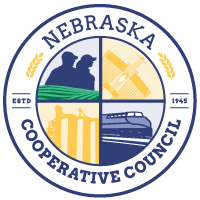Principles & Characteristics
Cooperative Principles and Business Characteristics
A cooperative is a user owned and controlled business in which benefits are distributed according to a member’s use of it. Three principles distinguish cooperatives from general corporations:
- user-owner
- user-control
- user-benefits
The user-owner principle means the people who use the cooperative own and finance the business. Cooperatives are financed by members purchasing stock, paying membership fees, or accepting self-imposed assessment on products purchased and/or sold or fees for services. In some cooperatives, members reinvest their earnings (profits) to capitalize the business.
User-control stems from the majority of the customers being members who are also responsible for selecting the members of the board of directors. As representatives of the members, the directors are responsible for setting policy and providing oversight on all the cooperative’s business practices.
User-benefits provide that the cooperative’s primary purpose is to distribute benefits to members. Distribution of these benefits is based on members’ use of the cooperative, not on the amount of capital they have invested.
